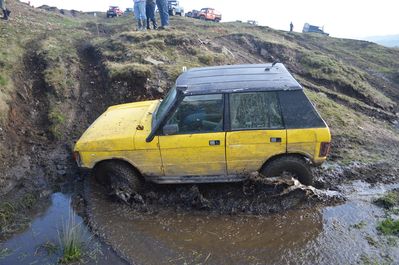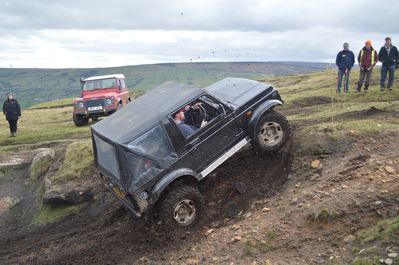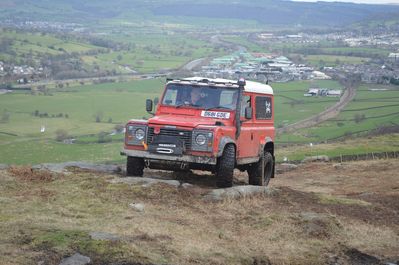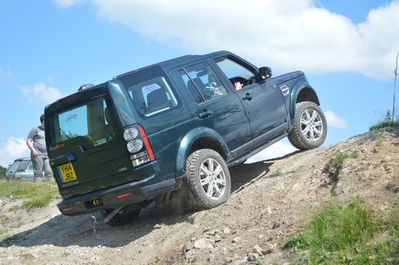Does old petrol go off?
Does old petrol go off?
I have heard many claims that petrol will 'go off' over time - some people claiming that even after only a couple of months, old petrol will cause poor running and one person even told me that it wouldn't burn... This is at odds with my experience, in fact I happily used petrol in the past that had been sat in the RRC tank for nigh-on two years with no ill effect.
Now I have just read an article in SuperBike by a learned gentleman who appears to back up my opinion that old petrol is unlikely to cause any problems, so I located a copy on the web and here it is:
Originally Posted by SuperBike Mag, Feb 2010:
Does petrol go off over time?
All sorts of problems are blamed on petrol that's "gone off" either in a bike's tank or in a separate petrol can. Is this really a problem, and, if so, how should you combat it? We've heard the same about brake fluid, so is that the case too?
Once again, it's over to the cleverest bloke we know, John Rowland, Fuchs Silkolene's top automotive research chemist to cut through the internet hype and give us the facts.
"Petrol in a sealed metal can does not go off, provided it is purchased in the UK or any other more or less civilised place. It will be OK for years. About the only additive in fuel is the detergent which doesn't evaporate. In these lead-free days, octane number depends on the molecular make-up of the fuel, and all you need to do is stop evaporation. Even the smallest molecules in there (such as hexane) can't get through metal. Plastic, as used for fuel containers, is itself made up of long-chain hydrocarbons (usually high-density polyethylene) which have similarities with the short-chain petrol hydrocarbons, so small petrol molecules worm their way into the relatively large spaces between the plastic molecules and get out the other side. Losses can be several percent over long periods (months) but thick plastic helps reduce this. You can't beat metal with its compact atomic structure for storing petrol."
"Petrol is OK in a can with an airspace; a tiny amount of the more volatile fractions of the fuel will evaporate to fill the airspace, and that's the end of it. It becomes a 'closed system in equilibrium'. Molecules go back into the liquid phase at the same rate as they leave it and enter the gaseous phase. Even a three-litre airspace in a five-litre can will only contain a very small amount of fuel vapour, equivalent to one or two CCs of fuel depending on the temperature."
"As for a vented fuel tank like most bikes have fitted, there will be some minor vapour loss of the more volatile fractions, such as hexane, but nowhere near as bad as losses from a container exposing a large sufface area of fuel to the air - such as a frying pan."
"Volume changes in the tank airspace due to daily temperature changes cause the tank to 'breathe', but one breath every 24 hours isn't so bad. Even a few months of this with a half full tank isn't a big deal. I get the impression from some bike owners that they think the fuel tank gasps away like an elephant running a marathon. In reality, it's more like a hibernating dormouse. Imagine a 16-litre tank with an eight-litre airspace, starting at 10C it cools to 0C. Using Charles' law, we can calculate the tank would draw in 300cc of air, and blows it out again when it warms up to 10C. But, petrol vapour is heavy, and the air drawn in will tend to sit on top of it, so, when air is lost when the tank warms up, it will be mainly the top layer with only a small amount of fuel in it."
"As for petrol evaporating from the carbs, some fuel, particularly from non-mainstream suppliers, can leave a tacky deposit when it dries out, but this was more of a 1990s problem. You don't hear of it happening today where civilisation (as we know it) exists. Even so, it's a good idea when putting a bike in storage to add a drop (5cc/litre) of good two-stroke oil to the fuel, run the engine until it's good and hot, shut down and cover with a thick blanket (cuts temperature fluctuation). Then, if the fuel dries out, a protective oily film will be there which is easily washed off when the bike is run again."
"Brake fluid (avoid the cheap stuff) will keep for years in a sealed, full, plastic bottle. Even a part-empty bottle is OK if the top is on tight. People worry too much about this water-absorption business. OK, it happens, but it's a slow process. Anyway, the boiling point of damp brake fluid is around 190C, so, unless you're out to bust the lap record at the IoM, it's not going to let you down."
In summary, fuel and brake fluid are unlikely to go 'off' unless stored incorrectly for years rather than months.
So there you go. If anyone has any old petrol that they think is useless - give it to me please
Roger
Now I have just read an article in SuperBike by a learned gentleman who appears to back up my opinion that old petrol is unlikely to cause any problems, so I located a copy on the web and here it is:
Originally Posted by SuperBike Mag, Feb 2010:
Does petrol go off over time?
All sorts of problems are blamed on petrol that's "gone off" either in a bike's tank or in a separate petrol can. Is this really a problem, and, if so, how should you combat it? We've heard the same about brake fluid, so is that the case too?
Once again, it's over to the cleverest bloke we know, John Rowland, Fuchs Silkolene's top automotive research chemist to cut through the internet hype and give us the facts.
"Petrol in a sealed metal can does not go off, provided it is purchased in the UK or any other more or less civilised place. It will be OK for years. About the only additive in fuel is the detergent which doesn't evaporate. In these lead-free days, octane number depends on the molecular make-up of the fuel, and all you need to do is stop evaporation. Even the smallest molecules in there (such as hexane) can't get through metal. Plastic, as used for fuel containers, is itself made up of long-chain hydrocarbons (usually high-density polyethylene) which have similarities with the short-chain petrol hydrocarbons, so small petrol molecules worm their way into the relatively large spaces between the plastic molecules and get out the other side. Losses can be several percent over long periods (months) but thick plastic helps reduce this. You can't beat metal with its compact atomic structure for storing petrol."
"Petrol is OK in a can with an airspace; a tiny amount of the more volatile fractions of the fuel will evaporate to fill the airspace, and that's the end of it. It becomes a 'closed system in equilibrium'. Molecules go back into the liquid phase at the same rate as they leave it and enter the gaseous phase. Even a three-litre airspace in a five-litre can will only contain a very small amount of fuel vapour, equivalent to one or two CCs of fuel depending on the temperature."
"As for a vented fuel tank like most bikes have fitted, there will be some minor vapour loss of the more volatile fractions, such as hexane, but nowhere near as bad as losses from a container exposing a large sufface area of fuel to the air - such as a frying pan."
"Volume changes in the tank airspace due to daily temperature changes cause the tank to 'breathe', but one breath every 24 hours isn't so bad. Even a few months of this with a half full tank isn't a big deal. I get the impression from some bike owners that they think the fuel tank gasps away like an elephant running a marathon. In reality, it's more like a hibernating dormouse. Imagine a 16-litre tank with an eight-litre airspace, starting at 10C it cools to 0C. Using Charles' law, we can calculate the tank would draw in 300cc of air, and blows it out again when it warms up to 10C. But, petrol vapour is heavy, and the air drawn in will tend to sit on top of it, so, when air is lost when the tank warms up, it will be mainly the top layer with only a small amount of fuel in it."
"As for petrol evaporating from the carbs, some fuel, particularly from non-mainstream suppliers, can leave a tacky deposit when it dries out, but this was more of a 1990s problem. You don't hear of it happening today where civilisation (as we know it) exists. Even so, it's a good idea when putting a bike in storage to add a drop (5cc/litre) of good two-stroke oil to the fuel, run the engine until it's good and hot, shut down and cover with a thick blanket (cuts temperature fluctuation). Then, if the fuel dries out, a protective oily film will be there which is easily washed off when the bike is run again."
"Brake fluid (avoid the cheap stuff) will keep for years in a sealed, full, plastic bottle. Even a part-empty bottle is OK if the top is on tight. People worry too much about this water-absorption business. OK, it happens, but it's a slow process. Anyway, the boiling point of damp brake fluid is around 190C, so, unless you're out to bust the lap record at the IoM, it's not going to let you down."
In summary, fuel and brake fluid are unlikely to go 'off' unless stored incorrectly for years rather than months.
So there you go. If anyone has any old petrol that they think is useless - give it to me please
Roger
My experience from year of messing with old motorcycles is that in certain circumstances it will "go off". This has been demonstrated on several occasions where bikes that have been stood for long periods won't start but once the system is cleaned out and filled with fresh fuel they do. The petrol that has been drained is brown an smells 'wrong'. My understanding is that unleaded petrol is "hydro scopic" and sucks water from the air. This is why steel tanks rust from the inside when left to stand and could be why the petrol takes on a brown tinge. If this brown colour is microscopic particles of rust then it will undoubtedly damage pumps and injectors if not adequately filtered out. In a completely air tight container designed for holding petrol it does appear to last okay as most people with mowers and chain saws will verify.
5/4 of people admit that they’re bad with fractions.
- Zedman
- Posts: 440
- Joined: Mon Feb 08, 2010 9:19 pm
- Location: Knaresborough
- Full Name: Richard Bentley
Having recently tried to start my bike after 2 years
Having recently tried to start my bike after 2 years and it would not fire, I changed the petrol NO JOY.
Suddenly an idea sprang to mind, ring my old man, at 75 and still riding bikes he was bound to have a solution.
hiya dad my bike won't start
erm well son i assume you have checked charged the battery and it has fuel in it.
yup
Ok, is it sparking?
It japenese dad 1. its bound to be sparking and 2. getting to the spark pulg is a ***** its hidden under the tank somewhere (yes Pam language moderated but u get the idea)
Ahh i remember now its a Suzuki, carbs probably dry and it wont self prime. ok you have a blow lamp ?
yes
Ok dont light it but fill the airbox with gas and try it, once it fires it will have enough suction to pull the fuel thro )
Bloody hell it started first go, dad your a genius
TIP OF THE DAY )
Suddenly an idea sprang to mind, ring my old man, at 75 and still riding bikes he was bound to have a solution.
hiya dad my bike won't start
erm well son i assume you have checked charged the battery and it has fuel in it.
yup
Ok, is it sparking?
It japenese dad 1. its bound to be sparking and 2. getting to the spark pulg is a ***** its hidden under the tank somewhere (yes Pam language moderated but u get the idea)
Ahh i remember now its a Suzuki, carbs probably dry and it wont self prime. ok you have a blow lamp ?
yes
Ok dont light it but fill the airbox with gas and try it, once it fires it will have enough suction to pull the fuel thro )
Bloody hell it started first go, dad your a genius
TIP OF THE DAY )
Jeep wrangler / Defender owner
If its not rattling its more than likely fallen off !
If its not rattling its more than likely fallen off !
Re: Having recently tried to start my bike after 2 years
I wonder if a fag-lighter holds enough gas? Could be a good tip for any poor starting, but could cause blow-backs?
Who is online
Users browsing this forum: No registered users and 37 guests




